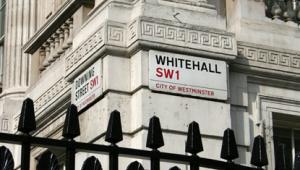Research published yesterday by the looked at how the England compares with the world class standard, based on the performance of the highest attaining countries.
It came ahead of the latest GCSE results, out today, which are using a new 9-1 grading system in English and maths. This method of grading is set to be rolled out across other subjects.
Overall in England, Wales and Northern Ireland, passes (grades C/4 and above) dropped 0.6% to 66.3% from last year.
In England, the English literature pass-rate fell 2.5% points to 72%, but in maths it rose from 61.5% to 68.9%. Both are new, tougher exams.
The new system is meant to be more demanding and, according to the EPI, pupils will need to attain an average ‘strong pass’ of grade 5 or more to match the highest performing countries in the world.
This is equivalent to an average of a high C or low B grade under the old system.
Researchers stated that the government’s measure of a pass, grade 4, is not good enough to compete with best performing levels of attainment around the world.
The think-tank highlighted that English students are lagging behind their foreign counterparts in both maths and reading, Singapore, Hong Kong, Macao, Taiwan, and Japan are the world’s best performers in maths, while Singapore, Hong Kong, Canada, Finland, and the Republic of Ireland lead for reading.
The EPI report states: “The findings from this new analysis make clear that England’s education system needs to improve significantly if it is to be on par with the leading countries in maths and reading.
“In particular, England (and indeed the other UK nations) needs to focus on the lowest attaining pupils – who are over-represented in the UK compared to world leading nations.”
The study noted that 136 out 150 local authorities fail to get half of their pupils achieving on average a ‘strong pass’ – a total of 50 points under the new system.
Areas such as the Isle of Wight, Knowsley, Blackpool, and Nottingham are significantly behind – with the proportion achieving on average a ‘strong pass’ is just over a quarter. In London, by contrast, 45% of pupils achieved the world-class standard.
Commenting on the GCSE results, school standards minister Nick Gibb said: “The government's new gold-standard GCSEs in English and maths have been benchmarked against the best in the world, raising academic standards for pupils.
“These reforms represent another step in our drive to raise standards, so that pupils have the knowledge and skills they need to compete in a global workplace.”




















